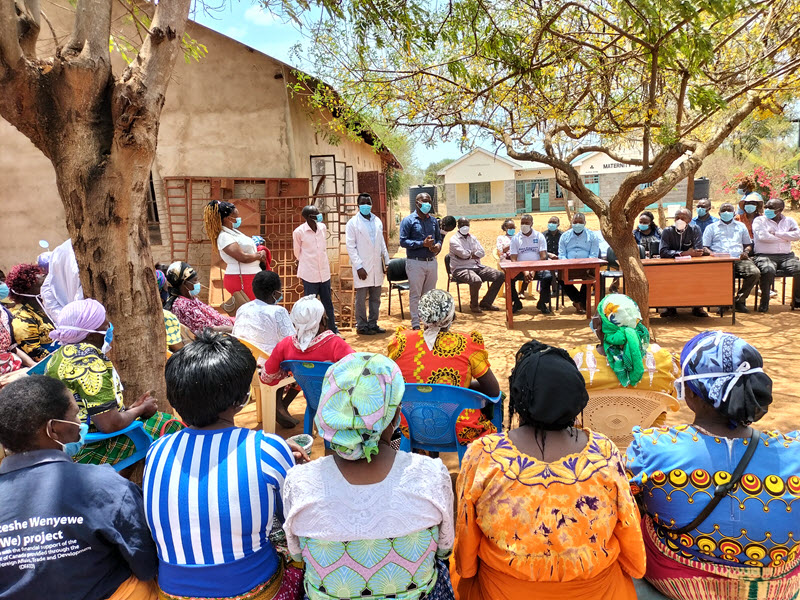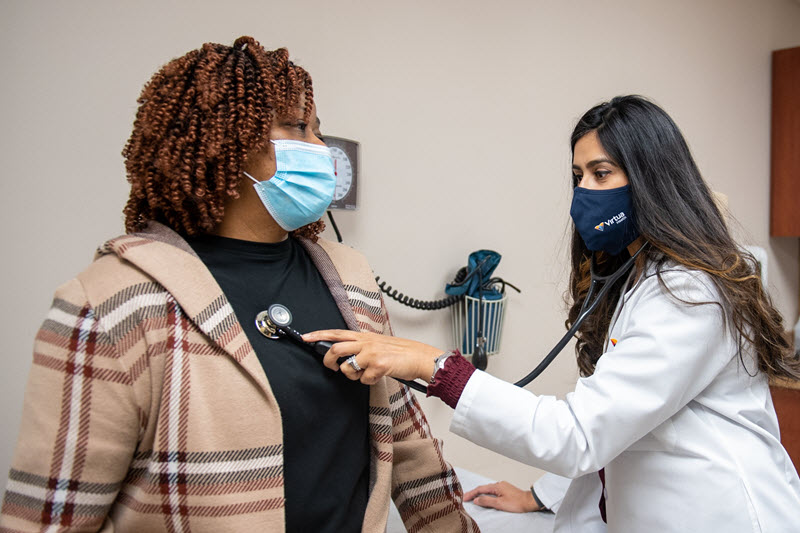Medtronic LABS reimagines community healthcare through collaborations
From Kenya to New Jersey, when it comes to healthcare, local is global
Mary has long struggled with high blood pressure, but the 52-year-old has found support since Medtronic LABS began programming in her community in Kenya.
An independent non-profit organization funded by Medtronic, Medtronic LABS is dedicated to creating technology-powered healthcare solutions to accelerate patient access for disadvantaged communities around the world.
Now, LABS is expanding its global work to include underserved communities in the United States.
The expansion comes as chronic and non-communicable diseases like hypertension and diabetes continue to kill more than 41 million people each year.1

In many low-and middle-income countries, people die from these diseases simply because they lack access to quality healthcare. That’s a reality many communities in the U.S. also face.
“We define ‘global health’ as truly global — not only focused on low- and middle-income countries, but on underserved communities regardless of country,” said Anne Stake, head of strategy and innovation for Medtronic LABS. “We hope to adapt the innovative models that we’re scaling across Africa and Asia to the U.S.”
Local is global
Medtronic, Medtronic LABS, Virtua Health, and the Cherry Hill Free Clinic, recently announced an agreement to help patients manage their chronic diseases in southern New Jersey and beyond. The plan is to use technology, data, community-based care models, and evidence-based practices to reduce health disparities in a meaningful, sustainable, and scalable way.
The Cherry Hill Free Clinic will be the site of LABS’ first U.S.-based pilot. Together, the organizations share a goal to build a proven, replicable model that becomes the benchmark for community healthcare delivery across the U.S.

“I am honored that Medtronic LABS and Virtua recognize the essential services we provide at the Cherry Hill Free Clinic, and that they are combining their resources and expertise toward enhancing continuity of care for existing and prospective patients,” said Jubril Oyeyemi, MD, founder and chief medical officer of the Cherry Hill Free Clinic. “The CDC estimates that 20 percent of Camden County, NJ residents do not have health insurance. By creating pathways to care, we build healthier communities.”
The pilot will combine software, services, and low-cost devices with a human approach — community health workers. And it has seen success in sub-Saharan Africa and Asia.
Throughout India, Kenya, and Ghana, Medtronic LABS has trained 2,000 health workers, screened over a million patients, and improved over 35,000 lives.
Just as it has overseas for communities like Mary’s, this pilot in the U.S. is designed to increase healthcare access for underserved communities by leveraging combined resources and expertise.
From meeting the unique needs of patients first to integrating into community-led work, innovation is still key.
“We always design with and for the communities we serve, leveraging our cutting-edge digital platforms specifically designed for community-based population health,” Stake said. “The patient experiences look very different from community to community.”
More than access
Medtronic, Virtua Health, and Cherry Hill Free Clinic share a belief that healthcare transformation, not incremental change, is the path forward to disrupt the status quo.
In addition to Medtronic LABS collaboration, Medtronic is partnering with Virtua Health to optimize patient care and the clinician experience.
By leveraging data, analytics, and insights, combined with the power of people and technology innovation, the organizations will strive to make a meaningful difference in patients’ quality of life.
That’s the exact potential Medtronic LABS sees when it comes to reimagining global health.
“There’s an opportunity to bring more global health perspective to U.S. healthcare and help reduce health inequity and increase access to quality care for the most vulnerable,” Stake said.
L001-12142021
